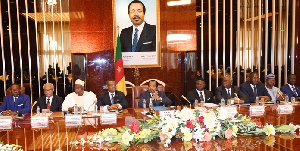As affected countries are grappling with the consequences and struggling to stop the spread and hopefully eliminate the Ebola virus from their countries. This simply gives still-to-be affected countries and those that were lucky to be spared, time to put in place strategies that will enable them to either speedily respond to or better handle the situation, should the deadly virus infiltrate their borders. The Church is an unavoidable partner in this effort.
A recent World Health Organisation survey reports that between 40 to 70 percent of African health facilities are the property of or managed by the Catholic Church. In many countries the Catholic Church has almost half of the local health facilities and so she cannot remain and has not remained indifferent to the present Ebola crisis that is ravaging some West African Countries. She equally needs to take urgent preventive or remedial measures for a majority her pastoral activities which are congregational, or better still social, as she also owns and runs thousands of schools that could be areas for transmitting the Ebola virus.
Contrary to rumours that the virus was already in Cameroon; claims that Cameroon’s Minister for Public Health quickly squashed, some countries that have been hard hit or preempting that they could be hit, have already taken some remedial or palliative measures which includes suspending the reopening of schools and universities until such a time that the Ebola-generated crisis would have abated.
At the international level, the Catholic Church is already at work as the special advisor to the Rome-based Catholic relief organisation confederation Caritas Internationalis, Mgr. Robert J. Vitillo recently attested over Radio Vatican. “The Catholic Church is working on three levels to help respond to the epidemic: the cure of infected people, preventive education to avoid a pandemic, and pastoral education.” Even before the outbreak, the Catholic Church had been working to prevent an epidemic and to educate people in common hygienic procedures as Caritas Internationalis Communication Officer Laura Sheahen explains. She adds that the Catholic Church has a lot of courageous priests, volunteers and parish workers who are working incredibly hard on the ground.
While at the international level the Church is already doing a lot to respond to and give a helping hand in overcoming the present Ebola crisis, one wonders if such will be the case were the Ebola crisis to break out in Cameroon. As a complementary effort to the Church’s international response, the local Church could join in what Mgr. Vitillo describes as the Church’s pastoral preventive education in helping Catholics and others to avoid contracting the virus in an environment that is very congenial and communal with a culture that is very social and in which it is acceptable for people to shake hands. We cannot fail to mention the promiscuous nature, overcrowding and close interactions especially in primary schools.
Christians, Moslems or traditional religions have a practice of being in contact with, washing and touching the body of dead members of their families before burial. These are cultural practices that help to spread the infection. Though these are difficult to change, they require some pastoral accompaniment and Christians need to be told that any circumstantial adjustments that could be made are not permanent, but only temporary dissuasive measures to keep the deadly virus at bay.
Even the Church could start exploring ways of addressing or introducing temporary changes to Mass practices like offering each other the sign of peace, massive Mass attendance, and addressing overcrowding or close contacts in Church. These changes pose real challenges, but they warrant being examined urgently as once infected; and there is no known cure for Ebola so far, patients have a 90 percent chance of dying.
Though a public health concern, the Church in Cameroon has a pastoral preemptive and a preventive education responsibility within the present Ebola-threatening context for as Mgr. Vitillo aptly says, “The Catholic Church supports people in their suffering, showing that there is a God accompanying us in our sufferings, (---) and so there is hope.”
Réligion of Tuesday, 26 August 2014
Source: leffortcamerounais.com















